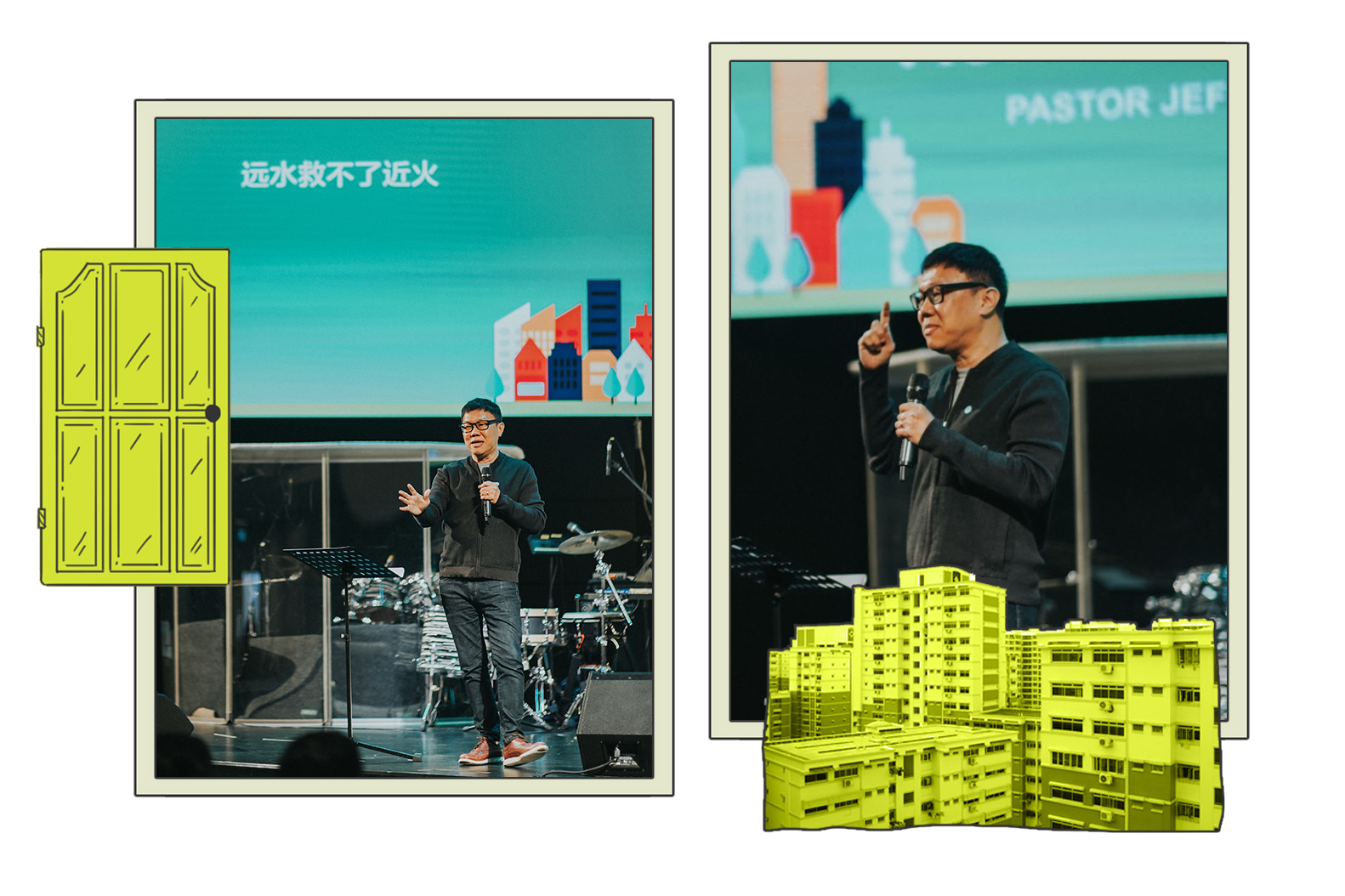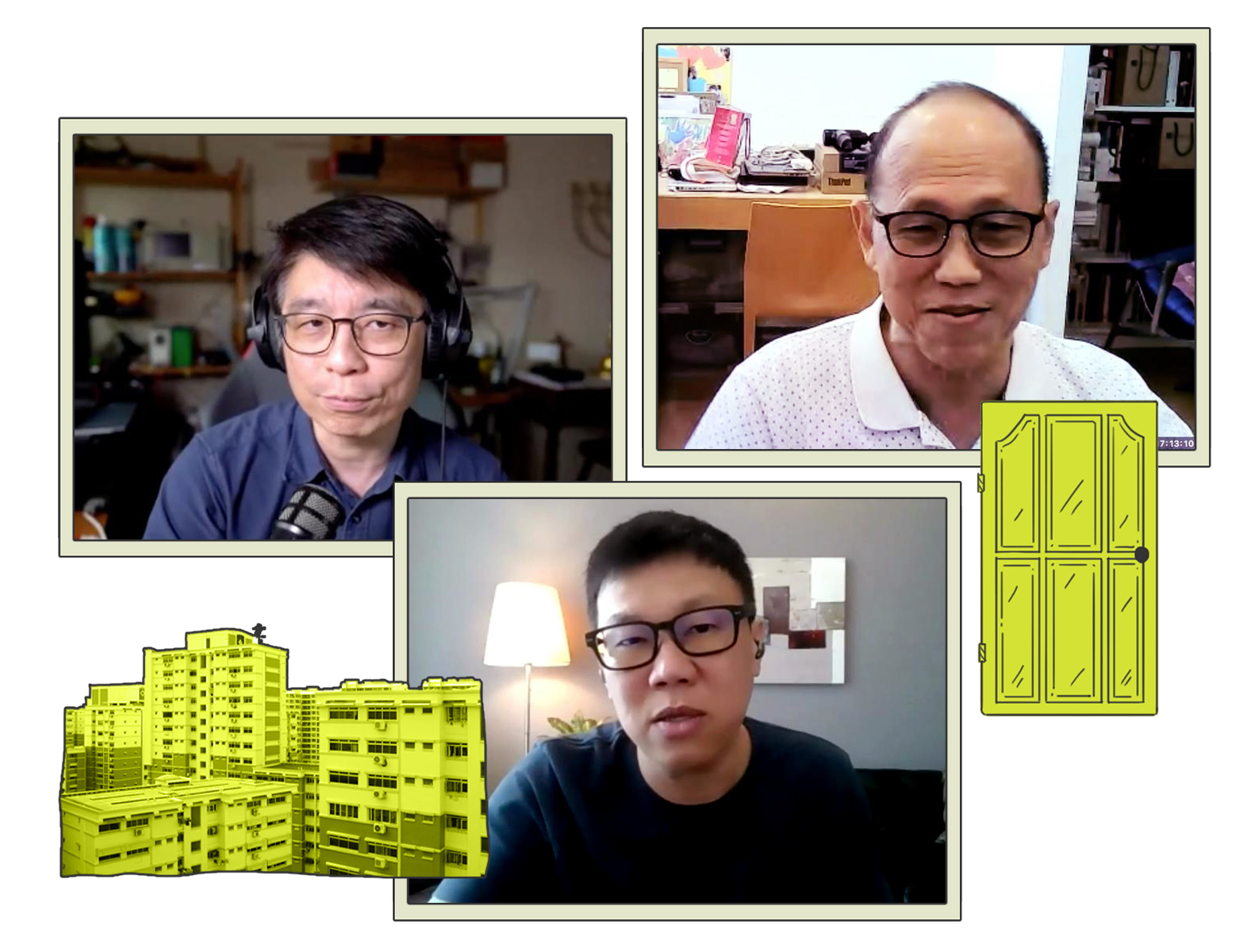We’ve probably heard it before: Evangelism is not a programme but a lifestyle. But what does this really mean?
On the second day of the LoveSingapore Pastors’ Summit, Hope Singapore‘s Senior Pastor Jeff Chong shared what this could look like.
“Our home address is not an accident,” he pointed out. “God has positioned us there.”
With more than 90% of Singapore’s population living in HDB flats or condominiums, “what if Jesus truly lives in every HDB block and every condominium project?” asked Pastor Jeff.
The lost will be found, he said.
If you haven’t already heard of Loving Singapore Block by Block, here’s the TL;DR: It’s a vision by LoveSingapore to see everyone reaching out to their neighbours.

Many of us might have grown up with the traditional form of event-based evangelism: Churches organising a grandiose service of sorts for us to invite our friends every Easter and Christmas.
But if you’ve been a Christian long enough, chances are you’ve already run out of people to invite – after all, there are only so many events you can ask your friends to before they feel the fatigue of attending multiple Christian activities.
Another drawback of purely friendship evangelism is that we have a tendency to reach out to people who are our own type.
“Like it or not, we like people who are like us,” Pastor Jeff said.
Instead, he challenged the audience to be intentional in connecting with people who are different from us.
Quoting from Luke 10:25-29, Pastor Jeff shared Jesus’ answer to an expert in law who wanted to test Jesus with the question: Who is my neighbour?
He explained: “At that time, there was an ongoing debate concerning the term ‘neighbour’.”
“The Jewish would only use neighbour to mean fellow Jews,” he continued. “To the Jews, the Samaritans were half-bred, outcasts and non-neighbours.”
“So his question was really an attempt to create a distinction.”

Instead of answering this question directly, Jesus responded with the age-old story that we have become familiar with: The Parable of the Good Samaritan.
And we all know the morale of the story: Neighbours are not just kaki lang (our own people), as Pastor Jeff puts it.
“Our neighbours are anyone that we encounter; that God has brought into our sphere of influences,” he said. “Everyone is our neighbour.”
That is the heart behind Loving Singapore Block by Block: We can start loving people wherever we are at.
At this juncture, I would like to affirm that event-based evangelism has its merits – I myself have been a beneficiary.
But if our greatest commandment is to love God and love people (Matthew 22:36-40) – and evangelism is an outflow of that love – then outreach really shouldn’t be restricted to a yearly activity where we invite people to church, but a daily act of love that we show others.
Perhaps this is also a timely approach in post-pandemic Singapore where there are still ongoing restrictions on congregating for large-scale events.
And who else would be better candidates than the familiar strangers we see every day: Our literal neighbours?
RELATIONSHIPS OVER RESULTS
To help us build rapport with our neighbours, Pastor Jeff suggested four simple steps that we can practise based on Luke 10:5-11: bless our neighbours, fellowship with them, minister to their needs and preach the gospel.
They don’t have to be done in a linear way, he clarified, noting that the sequence can be tweaked, while the activities one engages in would also be different depending on the demographic.
Of course, not all cases will result in the person coming to church.
In fact, during a follow-up session over Zoom, someone had asked: “What if after three years, the person still doesn’t accept Christ?”
Church of Our Saviour‘s Senior Pastor Daniel Wee response was to keep loving the person, but also continue reaching out to others.
Encouraging participants not to write people off, he quipped: “Some people take 30 years (to accept Christ). Then how?”
Likening the process to courtship, Pastor Daniel explained that most of us want to jump to the conclusion of “will you marry me?” even before we have done the dating.
“A lot of people are impatient partly because the pressure we put on them to produce these kind of results,” he said. “But we must be prepared to take a long road.”
After all, we are in a people – not an events – business, in which relationships are central, he concluded.
COMMUNITY OVER CONVERSION
To be honest, that can sound a little discouraging. You mean, after all that time and effort, our results are not guaranteed? Well, that’s only if we see conversion as our end goal.
“The goal is not to convert people,” Pastor Daniel reiterated. “That’s something you cannot do.”
As much as we desire for others to be saved, what we should focus on is showing them “the love of Christ” he explained.
“Evangelism is not a programme. It’s a fruit of who you really are. If you teach people to love, that love would produce the fruit of evangelism.”

This point was further emphasised by Living Sanctuary Brethren Church‘s Senior Pastor Lawrence Chua, who used a cute metaphor to describe what community outreach is like.
“It is like planting a durian tree. Don’t approach it like growing beansprouts,” he said, referring to how it can take years to see people coming to know Christ instead of weeks or months.
Evangelism cannot be seen as a transaction, where we equate the number of salvations to failure or success, emphasised Pastor Lawrence. “We don’t talk about our relationships on a transactional basis.”

Focusing on results could also be the reason why many people are afraid to evangelise.
“Most Christians want to reach out. In fact, they feel guilty that they don’t do enough,” Pastor Daniel observed. “When they started out as Christians, they were told to do evangelism, but they failed… And after failing for years, they feel bad about themselves.”
He couldn’t be more right. There were certainly occasions in the past when I placed pressure on myself – and my friends too – for wanting them to come to know Christ.
But if we reframe our perspective to see love as our goal, then perhaps we won’t be anxious about outreach.
I began this article by saying that evangelism is not a programme but a lifestyle. I believe that can only happen if we’re motivated by love.
Instead of inviting friends to a once-in-a-year activity, how can we show acts of love to others on a day-to-day basis?
We may not be able to love the whole of Singapore, but surely we can start by loving our neighbours one block at a time.
FOR MORE STORIES FROM THE PASTORS’ SUMMIT, READ:
- How do you feel about evangelism and outreach?
- Who are your neighbours and how can you start loving them in small ways?
- What does it mean for us to have love as our motivation when sharing the gospel?









